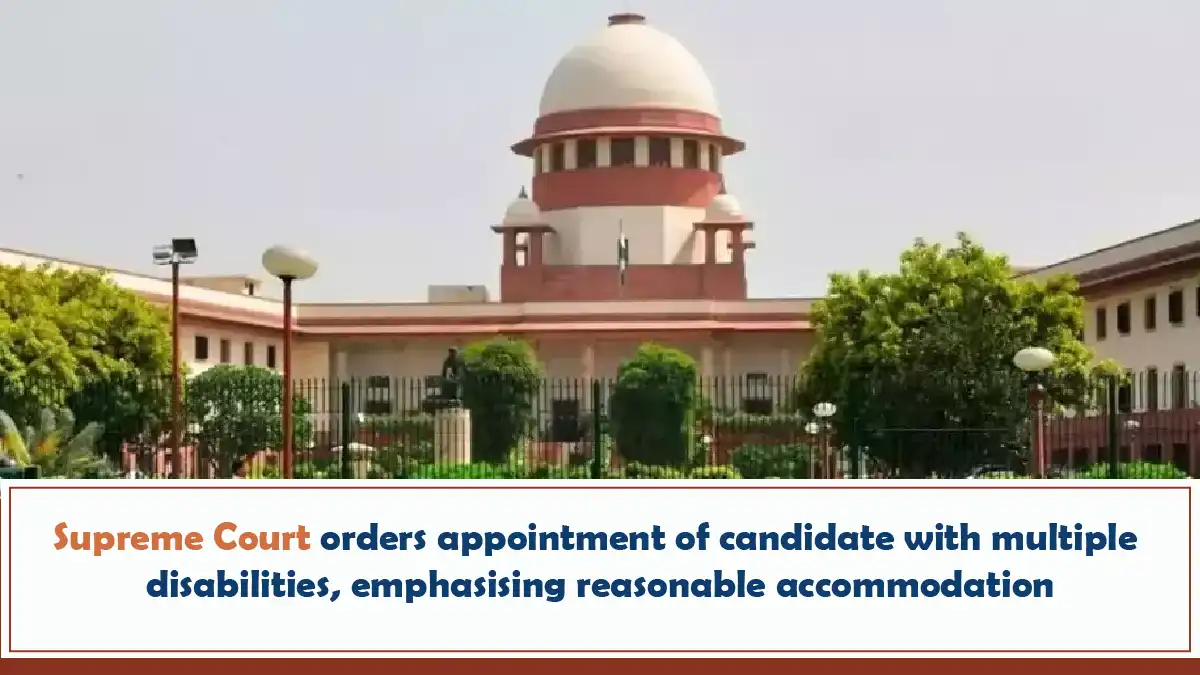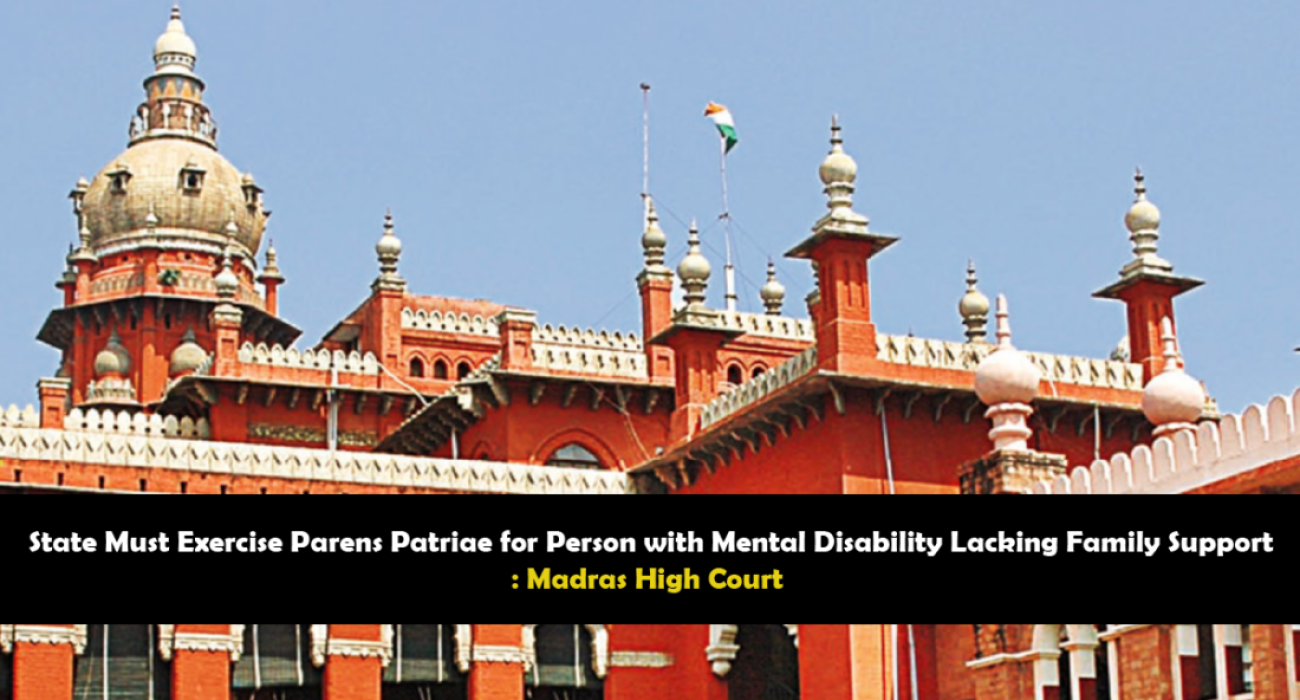

Table of Contents
ToggleThe petitioner, a daily wager with little money, has come before the court to ask for state assistance in caring for his son, 20, who has serious mental health problems and acts violently toward his parents. This writ petition asks the State to take over the petitioner’s son’s care and upbringing because the family is unable to take care of him.
The petitioner’s son was diagnosed with bipolar affective disorder, present episodic mania with psychotic symptoms, and was released from the psychiatry ward of Tirunelveli Medical College and Hospital on June 6, 2022. The son was admitted on May 20, 2022. The petitioner requests judicial intervention in order to obtain state support because the family finds it difficult to deal with his violent outbursts.
The petitioner argues that his family is unable to provide the necessary care and support for his mentally ill son due to their financial constraints. He contends that the State has an obligation to step in and provide for individuals with mental disabilities, particularly when their families are unable to do so.
The State’s representatives argue the state’s financial and practical limitations of offering tailored care for each and every instance that comes to their notice. They also draw the Court’s attention to the programs and support networks that are currently in place to deal with mental health concerns.
The court acknowledged the serious mental health issues faced by the petitioner’s son and the family’s inability to manage his condition. The court referred to various legal precedents and statutory provisions emphasizing the rights of individuals with mental disabilities, including the right to live with dignity and receive appropriate healthcare and support from the State. The HC stated “one can come to a safe conclusion that the State has to exercise its parens patriae jurisdiction in the case of mentally disabled who are without family support. When the State fails to exercise its duty, the constitutional Court exercising jurisdiction under Article 226 of the Constitution of India will direct the authorities to discharge the aforesaid function. The State is obliged to set up residential homes for the mentally disabled in every District. This alone will reduce overcrowding. There are NGOs who have set up such shelter Homes. The State should liberally support them financially so that the inmates can survive decently and also have requisite medical care.”
The petitioner’s kid must have proper housing and lifetime medical treatment, therefore the Court ordered the State authorities to take charge of his care. Until the patient is judged well enough to be released from treatment, this arrangement will stand. The Court stated that the State must protect the rights of people with mental disabilities and make sure that laws and policies are properly put into place to assist them. The writ petition was granted without charge, highlighting the State’s obligation to assist those who are in need within its jurisdiction.
This case emphasizes how crucial it is for the State to protect the rights and welfare of people who are suffering from serious mental health problems, particularly in situations where their relatives are unable to give them the care they need. The court’s determination to hold the State accountable for the petitioner’s son is indicative of a larger dedication to protecting the rights and dignity of those with disabilities. By invoking pertinent statutory provisions and judicial precedents, the court reaffirmed the imperative nature of governmental action. In addition to offering the petitioner relief, this decision establishes a standard for instances of a similar nature, guaranteeing that the government provides the necessary assistance and care to people with mental illnesses.
IAW resources
Browse our help directory